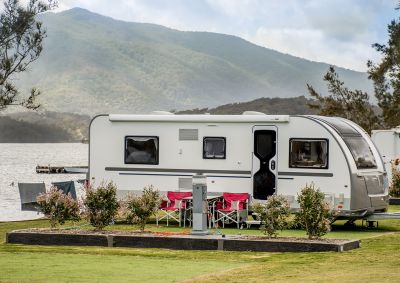If you are registering for a network or retail exemption, you will need to fill out our registration form.
On this page
Sidebar navigation
Retail
Who needs to register for a retail exemption?
Under the Retail Law, an entity must usually obtain a retailer authorisation in order to sell energy.
However, situations occur where a retailer authorisation is not necessary or appropriate. Examples include when selling energy is not the seller’s core business, the cost of obtaining authorisation outweighs the benefit to customers, or when an insignificant amount of energy is being sold.
We refer to these situations as ‘exempt selling’.
Examples of exempt selling include:
- Retirement villages where an owner or manager buys electricity from an authorised retailer, then ‘on-sells’ it to residents
- Caravan parks where an owner or manager buys electricity from an authorised retailer, then ‘on-sells’ it to residents
- Bodies corporate/owners’ corporations who buy electricity from an authorised retailer, then ‘on-sell’ it to tenants or residents
- A person selling energy at no profit or as a community service.
Our Retail Exempt Selling Guideline
Our Retail Exempt Selling Guideline sets out our approach to retail exemptions, including a full list of the types of activities which are exempt from the requirement to hold a retailer authorisation.
The guideline will help you understand:
- whether you need an exemption or an authorisation (Section 3)
- which type of exemption you need – deemed, registrable or individual (Section 4)
- who should hold the exemption (Section 5)
- how to get an exemption (Section 6)
- how we assess individual exemption applications (Section 7)
- the conditions exemption holders must comply with (Section 8).
Exempt selling fact sheets
Exempt selling to residential customers
This fact sheet explains the requirements and obligations for exempt sellers who on-sell energy to residential customers.

Exempt selling to small business customers
This fact sheet set out the requirements and obligations for exempt sellers who on-sell energy to small business customers.

Retail exemption usually requires network exemption
If you own, operate or control a privately owned network, you will need an exemption from the requirement to register as a network service provider with the Australian Energy Market Operator (AEMO).
We call this a network exemption and usually if you hold a retail exemption you will also need a network exemption which is also administered by the AER. The AER has a common registration form for both types of exemption (network and retail) to streamline this process.
Our Network Exemptions Guideline contains more information including a full list of the available classes of network exemption.
Retail exemption classes
Our Retail Exempt Selling Guideline outlines three different types of retail exemptions:
- Deemed exemptions
- Registrable exemptions
- Individual exemptions
Deemed exemption
If you are eligible for a deemed exemption, you do not need to apply to the AER. Instead, you are ‘deemed’ to fall within a particular class of exemption. However, you still need to abide by the conditions attached to the relevant class of exemption. The guideline sets out these conditions.
Registrable exemption
If you are eligible for a registrable exemption, you must register your energy selling activities with the AER by completing the exemption registration form.
This type of exemption doesn’t have an approval process. By submitting the form, you are consenting to publishing your exemption on our public register. Please do not include confidential information in your registration as they are not reviewed before publication. If in doubt, contact us first before registering to discuss the information to be published.
It is your responsibility to ensure you complete the registration form correctly and comply with the conditions attached to your exemptions specified in the Retail Exempt Selling Guideline or Network Exemptions Guideline.
Individual exemption
If your activities do not fall into one of the other categories above, you may apply to the AER for an individual exemption to cover your activities. Individual exemptions are tailored to specific situations, with conditions attached to the exemption where necessary. We will decide on any appropriate conditions when assessing your application.
To assist applicants with their individual exemption applications, we have developed the checklist below that mirrors the questions asked in Appendix B of our Retail Exempt Selling Guideline. We encourage applicants to complete the checklist and submit it as part of their application alongside a cover letter and any supporting evidence required.
We recommend that you contact us to discuss your specific circumstances if you are considering applying for an individual exemption. If you successfully apply for an individual exemption, you will be included on the AER’s public register.
Individual Exemption Application Checklist
Exemption conditions
The conditions for retail exemptions are based on the retail customer protections provided under the National Energy Retail Law.
Not all conditions apply to all exemption classes. To confirm the obligations for each class of exemption, please refer to the table in Appendix A-3 of our guideline.
The conditions cover obligations on matters such as
- the provision of information to customers
- joining the approved Ombudsman Scheme
- pricing
- disconnection.
Dispute resolution and Ombudsman scheme membership
Retail and network exemption holders that sell or supply energy to residential customers should join energy ombudsman schemes.
Public register of exemptions
We keep a public register of everyone who has an individual or registrable retail exemption.
This register contains additional information including the location of the exempt seller, the class of exemption, the date the exemption was granted and applicable conditions.